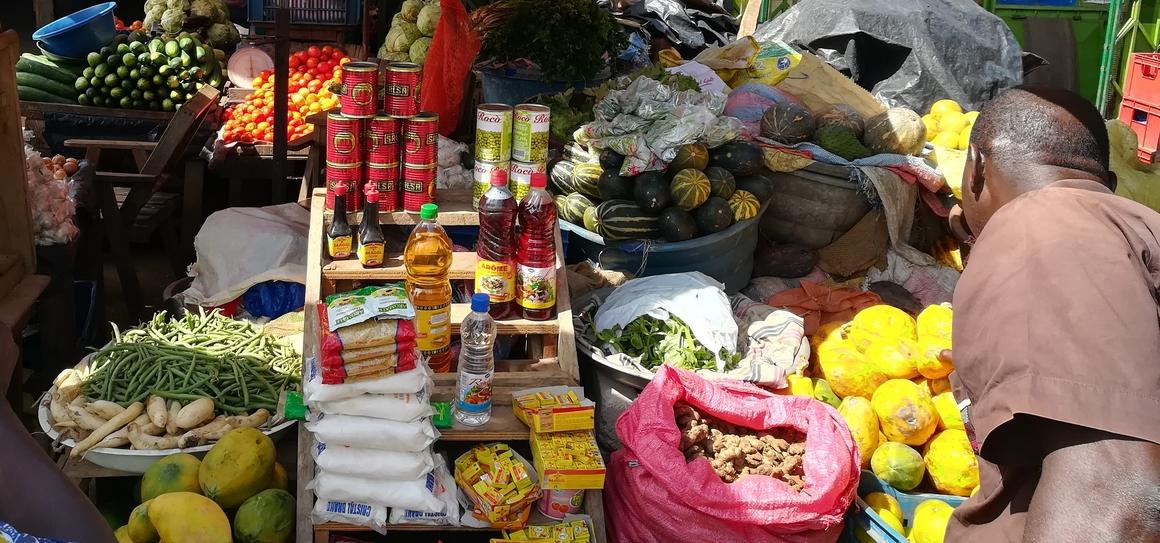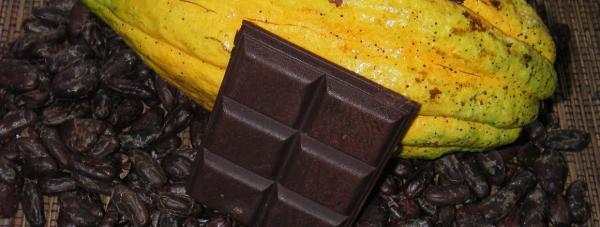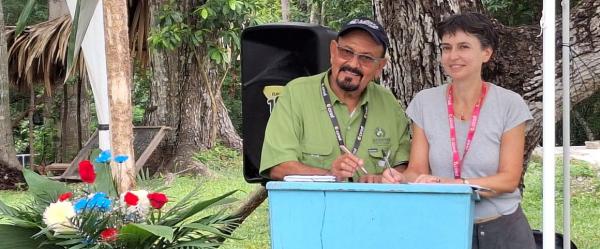Science at work 16 December 2025
- Home
- Press area
- Press releases
- Climate adaptation in the fruit and vegetable sector Africa
SAFOODS: understanding and tackling the impacts of climate change on African food systems

Agri-food market in Yamoussoukro, Côte d'Ivoire © V. Bancal, CIRAD
A workshop marked the official launch of the SAFOODS project on 18 October 2021. This three-year programme aims to identify the major climate change-related risks faced by fruit and vegetable supplies in Senegal and Ivory Coast. Coordinated by CIRAD, in partnership with NRI, ISRA and UNA*, SAFOODS is funded to the tune of 510,000 euros by the European Union ERANet Co-fund programme. Together, these partners will be focusing on two value chain adaptation strategies:
- Diversifying cropping systems and supply circuits,
- Reducing post-harvest losses.
From fork to field
“The first novelty of SAFOODS is to start from the fork rather than the pitchfork”, declares Arlène Alpha, a political economy specialist at CIRAD and project coordinator. “We find that local populations show signs of vitamin and mineral deficiencies, notably due to a low intake of fruits and vegetables. How can we make sure those deficiencies do not worsen with climate change?”
Demand for market garden products is currently on the increase, partly due to urbanization and population growth. Exchanges between urban and rural regions lie at the heart of the areas studied by SAFOODS, namely the value chains of the “city-regions” of Dakar and Ziguinchor for Senegal, and Yamoussoukro and Abidjan for Ivory Coast. “When we say city-regions, we mean study sites stretching from urban centres to production areas” points out Arlène Alpha.
Considering all the links in the chain
While most climate change impact studies have concentrated on links between consumption and production, this project will be including all links in the value chains: from processing to distribution, including transportation, packaging and storage. The holistic approach of SAFOODS seeks to ensure that all stakeholders in the food chains are involved in the processes of adapting to climate change.
Up to and including public policies
SAFOODS intends to address these adaptations at the very heart of public policies: “If we want the project results to last, adaptations cannot be the sole responsibility of farmers and other stakeholders in the value chains”, states Arlène Alpha. “They need to be backed in the long term by decision-makers, envisaging the food systems of tomorrow together with all the stakeholders.”
* SAFOODS partner organizations:
- Natural Resources Institute (NRI), University of Greenwich, United Kingdom
- Institut Sénégalais de Recherches Agricoles – Bureau d’Analyse macroéconomique (ISRA BAME), Senegal
- Nangui Abrogoua University (UNA), Ivory Coast
This project has received funding from the European Union’s Horizon 2020 research and innovation programme.




























